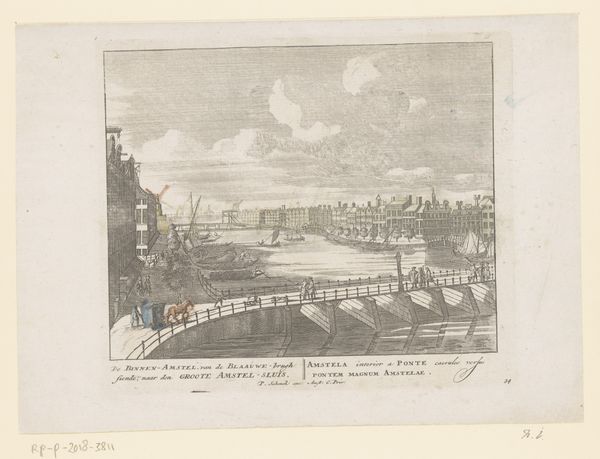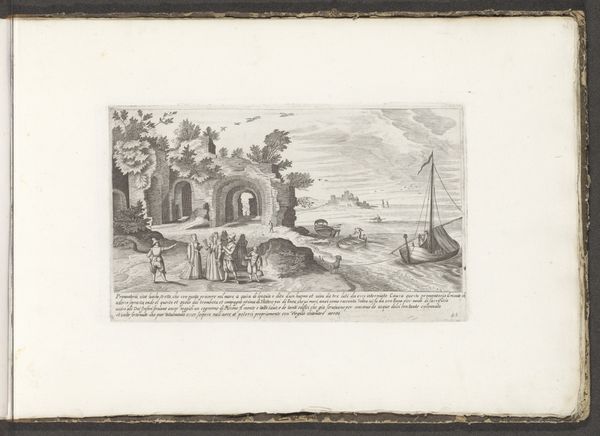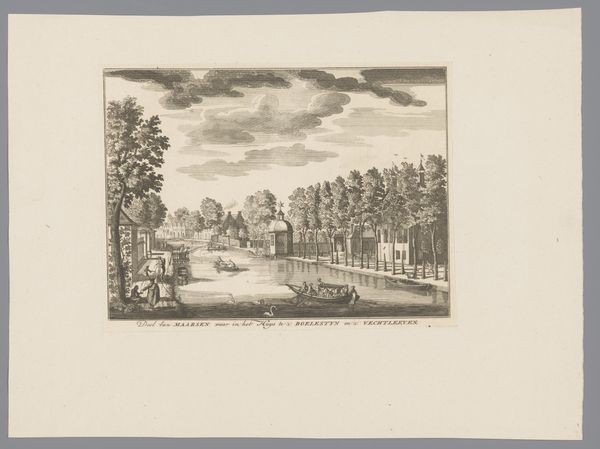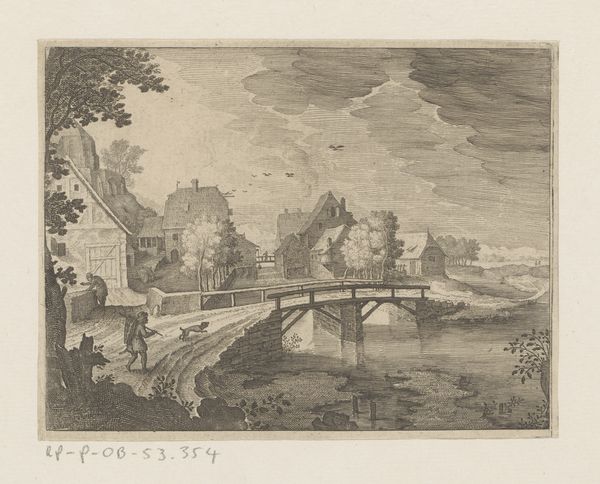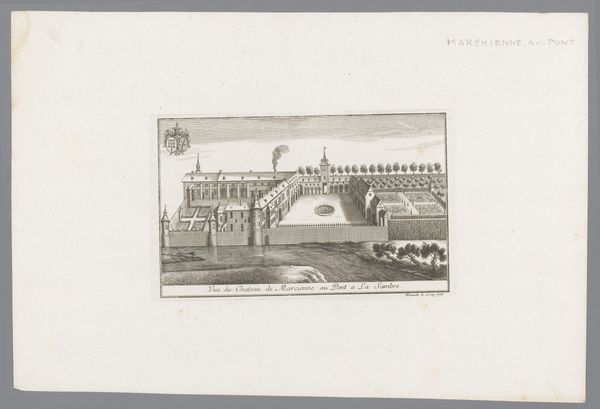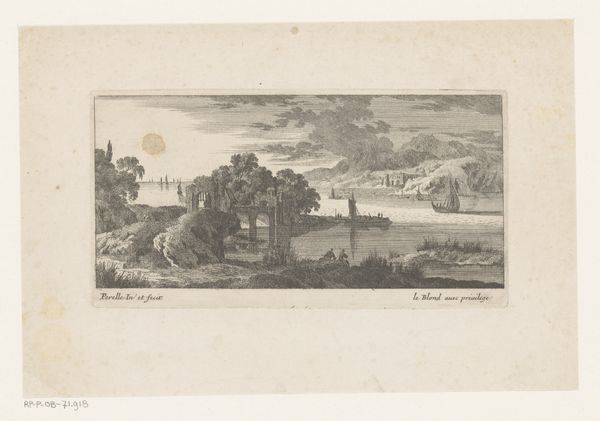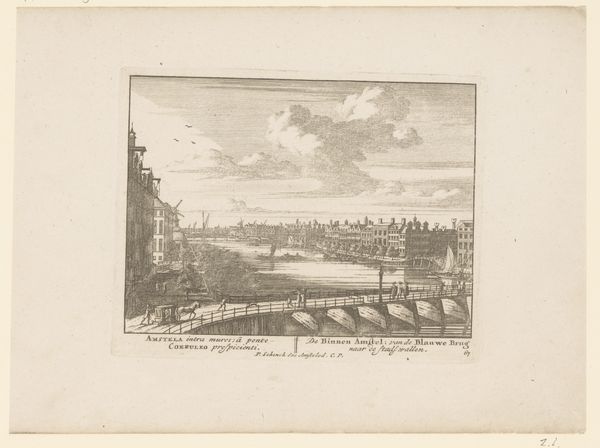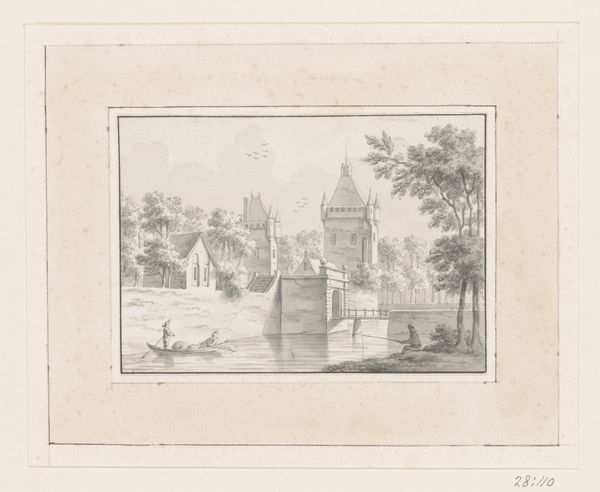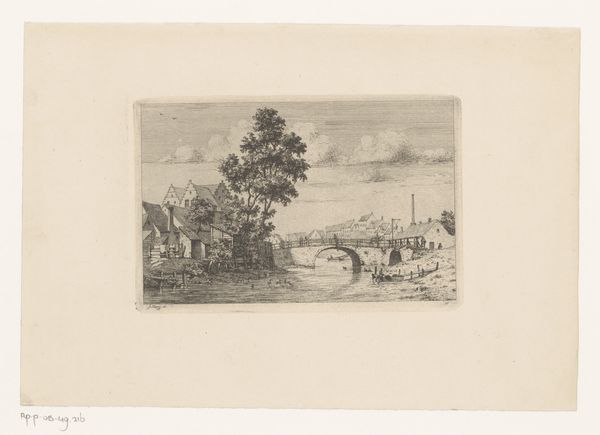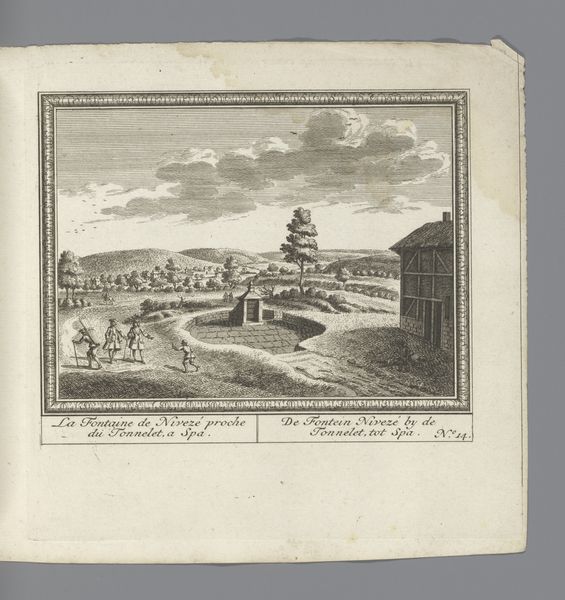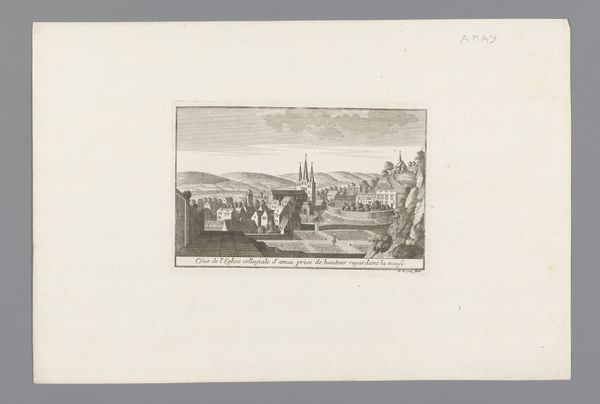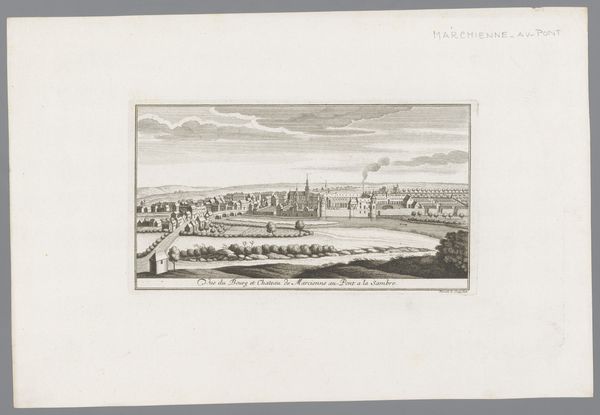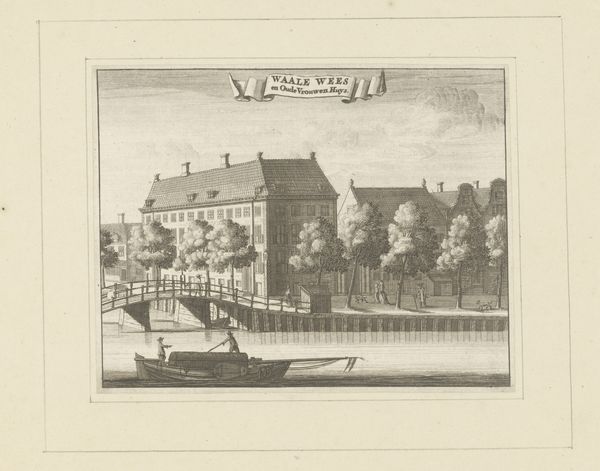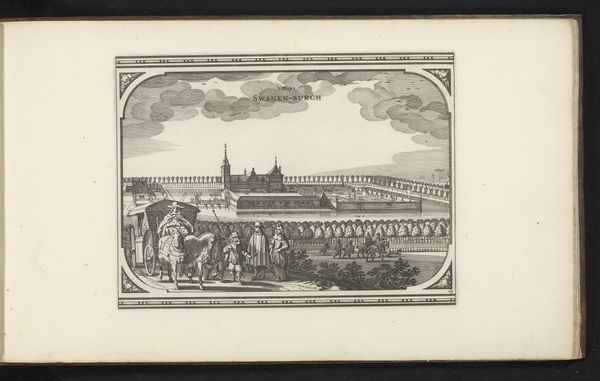
print, etching
#
dutch-golden-age
# print
#
etching
#
landscape
#
cityscape
Dimensions: height 127 mm, width 159 mm
Copyright: Rijks Museum: Open Domain
This print shows a view of the Walenweeshuis, or Walloon Orphanage, in Amsterdam, made by an anonymous artist using etching. The network of fine lines, achieved by drawing into a wax-covered metal plate with a sharp needle, then bathing it in acid, are especially well suited to architectural subjects like this. Notice how the density of the etching defines the forms, from the reflection in the canal to the clouds above. The level of detail suggests that this print served a documentary purpose; maybe it was a commission. The craft of etching has long been used to produce images for dissemination, and like a photograph, it offers the ability to reproduce an image many times. Prints such as this one remind us that all images, even seemingly straightforward ones like this, are made, and that their production involves both labor and an intention to be consumed. By considering these aspects, we recognize the broader cultural and social implications of even the most unassuming works of art.
Comments
No comments
Be the first to comment and join the conversation on the ultimate creative platform.
